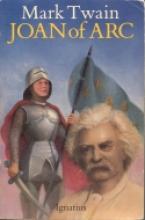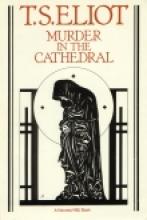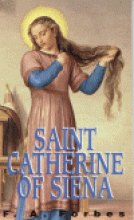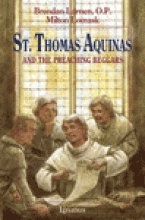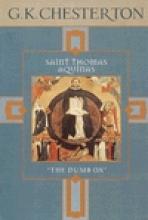Saints High Middle Ages
Joan of Arc
Subject(s):
Setting:
Grade / Age level:
Review:
Saint Joan of Arc is one of the most astonishing saints of all time. Prayerful, as all saints must be, humble, generous, and patient, Joan served God by leading the armies of France to boot the English from their soil in 1431. Not a usual task for a girl in her late teens, saint or not. And afterwards, to make it perfectly clear that the English were engaged in an act of godless aggression, Joan was burned as a witch after a trial that was unjust, illegal and cruel in every detail.
So who is qualified to tell this story? Another saint? A theologian? A soldier? What about just a good American story-teller -- indeed the best -- but a man with hardly any faith at all?
Mark Twain is most famous for his Mississippi River stories, Tom Sawyer and Huckleberry Finn. It is not well enough known that his own favorite of all his works was the life of St. Joan of Arc, told from the fictional perspective (but this is the only fiction in the book) of a childhood companion who accompanied her on her wars, and then smuggled himself into her trials as a court reporter and was the last to touch her hand before she died.
Mark Twain really loved Joan and he dedicated the entire fiber of his wonderful talent to telling her story. I see him in the year 1910, knocking at the Pearly Gates, and I see Peter's hesitation, for Twain was after all, something of an unbelieving old cynic. But over Peter's shoulder, I see a slight and mischievous lass tugging his sleeve and saying with a grin, "Let him in, now, let him in!" while a Voice thunders from the Throne, "Any friend of Joan's is a friend of Mine."
Read it yourself, silently or aloud to the family, and see if you don't agree.
So who is qualified to tell this story? Another saint? A theologian? A soldier? What about just a good American story-teller -- indeed the best -- but a man with hardly any faith at all?
Mark Twain is most famous for his Mississippi River stories, Tom Sawyer and Huckleberry Finn. It is not well enough known that his own favorite of all his works was the life of St. Joan of Arc, told from the fictional perspective (but this is the only fiction in the book) of a childhood companion who accompanied her on her wars, and then smuggled himself into her trials as a court reporter and was the last to touch her hand before she died.
Mark Twain really loved Joan and he dedicated the entire fiber of his wonderful talent to telling her story. I see him in the year 1910, knocking at the Pearly Gates, and I see Peter's hesitation, for Twain was after all, something of an unbelieving old cynic. But over Peter's shoulder, I see a slight and mischievous lass tugging his sleeve and saying with a grin, "Let him in, now, let him in!" while a Voice thunders from the Throne, "Any friend of Joan's is a friend of Mine."
Read it yourself, silently or aloud to the family, and see if you don't agree.
Reviewed by:
First reviewed:
1998-99
Joan of Arc
Number of pages:
30 pages
Copyright:
1998
Binding:
Softcover
Subject(s):
Setting:
Grade / Age level:
Review:
This is a beautiful picture book, telling the story of Joan of Arc, from her childhood days to martrydom. The pictures are brilliant, captivating, and evocative. It is an oversized children's book, with the pictures covering two-thirds of the pages, and the text in the remainder. The story is told quite simply, with Joan given positive treatment. The author portrays Joan as a gentle, and yet courageous, religious young woman. Joan of Arc would be suitable for children five years of age, and up. I would highly recommend this book for any family studying the Middle Ages..
While I used Mark Twain's Joan of Arc as a read-aloud, I used Poole's version for the younger children. Also, the pictures and map really complimented Twain's book.
While I used Mark Twain's Joan of Arc as a read-aloud, I used Poole's version for the younger children. Also, the pictures and map really complimented Twain's book.
Perspective:
Catholic
Reviewed by:
First reviewed:
1998-99
Murder in the Cathedral
Subject(s):
Setting:
Grade / Age level:
Review:
This classic play, written in the fashion of a Greek tragedy (but with Catholic content) is suitable for high school students and adults. Handling the topic of St. Thomas Becket' martyrdom, it focuses on the spiritual and emotional struggles and temptations the Archbishop is faced with immediately before his martyrdom. Full of many truths and fodder for great discussion, this is a highly recommended piece for literature, religion and history.
Perspective:
Catholic
Additional notes:
Various editions available
Reviewed by:
First reviewed:
7-7-2000
Saint Catherine of Siena
Subject(s):
Setting:
Grade / Age level:
Review:
Catherine was born in the year 1347 of a wealthy family in Siena, Italy. These were troubled times in her native country. The pope was living in Avignon, France, and rival Italian cities and families were constantly at war with one another. The author gives presents a rather interesting story of a rather remarkable little girl who had heavenly visions and was a light of comfort and cheer to all those who came in contact with her. As Catherine grew older she live a very pious and austere life, offering great penances to Our Lord and working to help the poor and convert sinners. One of the most remarkable stories of this time in her life is how she brought a man back to the faith just before he was to be executed - even remaining with him at the time of his execution. But God had even bigger plans for Catherine. To her came the difficult task of convincing the pope to return to Rome and help and encourage him through the hardships involved after he did finally return. Catherine's devout prayer life, her obedience to the will of God and her great humility allowed her to overcome seemingly impossible tasks by the grace of God. Today she is honored as one of the greatest of saints and a Doctor of the Church. The book is suitable for upper grade school and high school, but will be beneficial to adults as well!
Perspective:
Catholic
Reviewed by:
First reviewed:
3-17-2000
Saint Francis of Assisi
Subject(s):
Setting:
Grade / Age level:
Review:
Perspective:
Catholic
Additional notes:
This book is available in numerous editions - including one from Ignatius Press which also includes Chesterton's book on St. Thomas Aquinas.
Reviewed by:
First reviewed:
3-1-2007
Saint Thomas Aquinas
Subject(s):
Setting:
Grade / Age level:
Review:
Despite its humble appearance, this biography of Saint Thomas Aquinas is a real gem. The story is told as a real story should be told, full of miracles and detail without becoming preachy, yet it is simple enough for the children it was written to instruct. The rich vocabulary hints at an original copyright in the early 1900s and may be challenging to a young independent reader. You may wish to read this book aloud to the under-8s or beside an 8-9-year-old to be sure of comprehension. The short chapters allow for frequent pauses and discussion of the spiritual truths encountered, and the black-and-white line drawings are tempting to our young colorists. Many of the elegantly written passages are perfectly suited for copywork.
The book begins with an introduction to Saint Thomas Aquinas that tells of his unique titles in the Church and his gifts of wisdom and learning. We learn of his childhood and his studies, his captivity and his nickname, the Dumb Ox, and of his beautiful hymns for the feast of Corpus Christi and Benediction. We read about the many miracles and holy favors enjoyed by the Saint and learn from examples of his spiritual gifts of charity, humility, and intelligence. Finally, we hear about his holy death, canonization, and the institution of his feast day. Our young students will be encouraged to pray to this great Doctor of the Church and be inspired to work hard at their studies in imitation of him.
The book begins with an introduction to Saint Thomas Aquinas that tells of his unique titles in the Church and his gifts of wisdom and learning. We learn of his childhood and his studies, his captivity and his nickname, the Dumb Ox, and of his beautiful hymns for the feast of Corpus Christi and Benediction. We read about the many miracles and holy favors enjoyed by the Saint and learn from examples of his spiritual gifts of charity, humility, and intelligence. Finally, we hear about his holy death, canonization, and the institution of his feast day. Our young students will be encouraged to pray to this great Doctor of the Church and be inspired to work hard at their studies in imitation of him.
Perspective:
Catholic
Reviewed by:
First reviewed:
9-3-04
Saint Thomas Aquinas and the Preaching Beggar - additional
Number of pages:
190 pages
Copyright:
1957
Publisher:
Ignatius Press
Binding:
Sewn Softcover
Subject(s):
Setting:
Grade / Age level:
Review:
(Additional Review) "Essentials and Accidentals"
Once Saint Thomas Aquinas was in a class that Saint Albert the Great taught. One day St. Albert asked why this was silly: "I am a human being and I have a high pitched voice; therefore all human beings have high-pitched voices."
St. Thomas said that Father Albert should be pointing to an "essential" and not an "accidental". An essential is what all of what you are talking about have. An "accidental" is what only some of what you are talking about have. For example, how big a room is, what shape it is, what color it is and what it is used for are all accidentals. The essential thing about a room is that it is a space between four walls and has a ceiling and a floor.
I thought that this was very brilliant.
Once Saint Thomas Aquinas was in a class that Saint Albert the Great taught. One day St. Albert asked why this was silly: "I am a human being and I have a high pitched voice; therefore all human beings have high-pitched voices."
St. Thomas said that Father Albert should be pointing to an "essential" and not an "accidental". An essential is what all of what you are talking about have. An "accidental" is what only some of what you are talking about have. For example, how big a room is, what shape it is, what color it is and what it is used for are all accidentals. The essential thing about a room is that it is a space between four walls and has a ceiling and a floor.
I thought that this was very brilliant.
Perspective:
Catholic
Additional notes:
Reviewer age 9
Reviewed by:
First reviewed:
1998-99
Saint Thomas Aquinas and the Preaching Beggars
Subject(s):
Setting:
Grade / Age level:
Review:
St. Thomas Aquinas is one of the most beloved and revered saints of all time - both for his holiness and for his intellect. This accessible chapter book (from the Vision book series) gives a good overview of the "Angelic Doctor's" life with an emphasis on some of his most important philosophies and ideas.
My husband and I were quite pleased and delighted when our then nine year old daughter came to us, while in the middle of this book, exclaiming that "St. Albert the Great" was really brilliant because he understood the difference between "accidental" and "essential". We thought that was a great concept to introduce children to as well. When I finally got around to reading the book myself two years later, I enjoyed the story very much. I think that those who are fussy about writing quality would find this a little lacking - so I'll just say now that it's no great work of literature. I do think it worthwhile, however, because of the way the authors managed to integrate important ideas and interesting anecdotes to help bring to life this great Saint and great thinker who gave so much to the Church.
Update: We're so excited to learn that this great book has just been reprinted by Ignatius Press this summer (2005)!!!
My husband and I were quite pleased and delighted when our then nine year old daughter came to us, while in the middle of this book, exclaiming that "St. Albert the Great" was really brilliant because he understood the difference between "accidental" and "essential". We thought that was a great concept to introduce children to as well. When I finally got around to reading the book myself two years later, I enjoyed the story very much. I think that those who are fussy about writing quality would find this a little lacking - so I'll just say now that it's no great work of literature. I do think it worthwhile, however, because of the way the authors managed to integrate important ideas and interesting anecdotes to help bring to life this great Saint and great thinker who gave so much to the Church.
Update: We're so excited to learn that this great book has just been reprinted by Ignatius Press this summer (2005)!!!
Perspective:
Catholic
Reviewed by:
First reviewed:
1-3-05
St. Thomas Aquinas
The Dumb Ox
Subject(s):
Setting:
Grade / Age level:
Review:
This little book is interesting. It is NOT the definitive work on St. Thomas. It is NOT a primer on his philosophy. It is an interesting mix of: a story of his life (or rather stories from his life), a little taste of his genius, another taste of what his ideas mean to the world (including how relevant they are today) and ideas about why he was the way he was.
It does not seem adequate to compare it to a TV show but it reminds me of one of those really good PBS documentaries that gets you totally involved in something you didn't ever think was that big a deal.
Chesterton uses these different angles on Thomas and Thomism to leave you in admiration. Here was a man who by his diligence, incredible intelligence and humble love of the Truth contributed clarity to Catholic teaching - and to the WORLD (physical and spiritual). Wielding Aristotle's long forgotten philosophy Thomas makes sense of the World and the Church in a way that is profoundly true and incredibly accessible. Chesterton gives us enough of a taste to seriously whet the appetite and provides enough momentum to carry us past this book right into Thomas himself. Which is perfect. Thomas Aquinas, despite his genius (probably BECAUSE of his genius) can be understood by anyone who can read even this simple book of Chesterton's.
As Thomas was not only brilliant but humble it is fitting that Chesterton imitates the saint in this work by being both insightful and modest. Since, thankfully, Chesterton's prose is both more lucid and more delighful than my own I will defer to Chesterton's own introduction: "This book makes no pretence to be anything but a popular sketch of a great historical character who ought to be more popular. Its aim will be achieved if it leads those who have hardly even heard of St. Thomas Aquinas to read about him in better books." I would go further and suggest the reading of St. Thomas's OWN books - you will be amazed how enlightening, straighforward and refreshing it can be.
It does not seem adequate to compare it to a TV show but it reminds me of one of those really good PBS documentaries that gets you totally involved in something you didn't ever think was that big a deal.
Chesterton uses these different angles on Thomas and Thomism to leave you in admiration. Here was a man who by his diligence, incredible intelligence and humble love of the Truth contributed clarity to Catholic teaching - and to the WORLD (physical and spiritual). Wielding Aristotle's long forgotten philosophy Thomas makes sense of the World and the Church in a way that is profoundly true and incredibly accessible. Chesterton gives us enough of a taste to seriously whet the appetite and provides enough momentum to carry us past this book right into Thomas himself. Which is perfect. Thomas Aquinas, despite his genius (probably BECAUSE of his genius) can be understood by anyone who can read even this simple book of Chesterton's.
As Thomas was not only brilliant but humble it is fitting that Chesterton imitates the saint in this work by being both insightful and modest. Since, thankfully, Chesterton's prose is both more lucid and more delighful than my own I will defer to Chesterton's own introduction: "This book makes no pretence to be anything but a popular sketch of a great historical character who ought to be more popular. Its aim will be achieved if it leads those who have hardly even heard of St. Thomas Aquinas to read about him in better books." I would go further and suggest the reading of St. Thomas's OWN books - you will be amazed how enlightening, straighforward and refreshing it can be.
Perspective:
Catholic
Reviewed by:
First reviewed:
1-3-05

